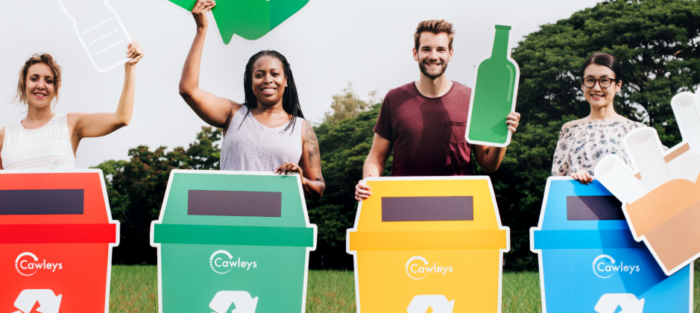Due to their long-term dependence on China, the U.S. recycling infrastructures were never created and there was no cost-effective or efficient way to deal with recycling whenever the market went away.
For the time being, “recycling is a system that needs to compete — and undoubtedly often loses” — for public taxes which is also needed for schools and policing, says Stephanie Kersten-Johnston, a Columbia University adjunct professor and the director of the circular venture at The Recycling Partnership.
“Recycling infrastructure alone won’t suffice if no committed funding is provided. Reducing the cost of landfilling means that recycling will no longer be considered “worthwhile,” so we must start thinking about landfill as what it truly is: a waste of rubbish!
The United States does not even have a public recycling system, making the matter even more complicated, and increasing pollution in the process.
By Kersten count, Johnston’s 20,000 localities in the United States make their own decisions on whether or not to recycle. To prevent conflicting interests, we need to create a common ground and agree on a set of common objectives.”
It’s a collaborative effort between businesses, communities, and individuals such as recyclers, haulers, manufacturers, and consumers.
The Best Waste Management Practices
Here are a few examples of recycling programs that are working.
San Francisco, which aims to have zero waste by 2020, diverts 80% of its garbage from landfills. Residents and businesses in the city are required to sort their garbage into three categories: recyclables go in blue bins, compostables go in green bins (the city diverts 80% of its food waste), and landfill waste goes in black bins.
All food vendors in San Francisco must utilize compostable/recyclable containers and dumpster rentals if needed, as well as every event, must provide recycling and composting options for participants. Shoppers who bring their shopping bags to the counter will be charged 25 cents starting July 1.
Almost % of Los Angeles’ waste is recycled, with a goal of 90 % by 2025. There is a tax credit for businesses that compost a certain amount of food waste, and restaurants are compelled by law to decompose their food waste. It’s also encouraging citizens to recycle and compost, according to a program dubbed “Rethink LA.”
Recycling and composting are mandated by law for all properties in Austin, Texas, which aims to redirect 75 percent of its garbage within the year. At least half of the waste generated by large-scale construction projects must be repurposed or recycled.
Dumpster Rentals to the rescue
Recyclable glass and other materials can be separated into distinct colored containers for recycling in Germany. When packaging material is marked with a green dot, the manufacturer assumes responsibility for the cost of recovery and recycling.
They pay a charge based on the weight of their packaging to have it collected, processed, and recycled by a waste collection business.
About 50% of South Korea’s garbage including 95 percent of its food waste, is recycled, using dumpster rentals and recycling facilities.
By requiring residents to pay according to the weight of their organic trash, the country was able to drastically reduce food waste. The cost of disposing of non-recyclable trash is based on its weight, and recyclables are collected free of charge.




Comments are closed.